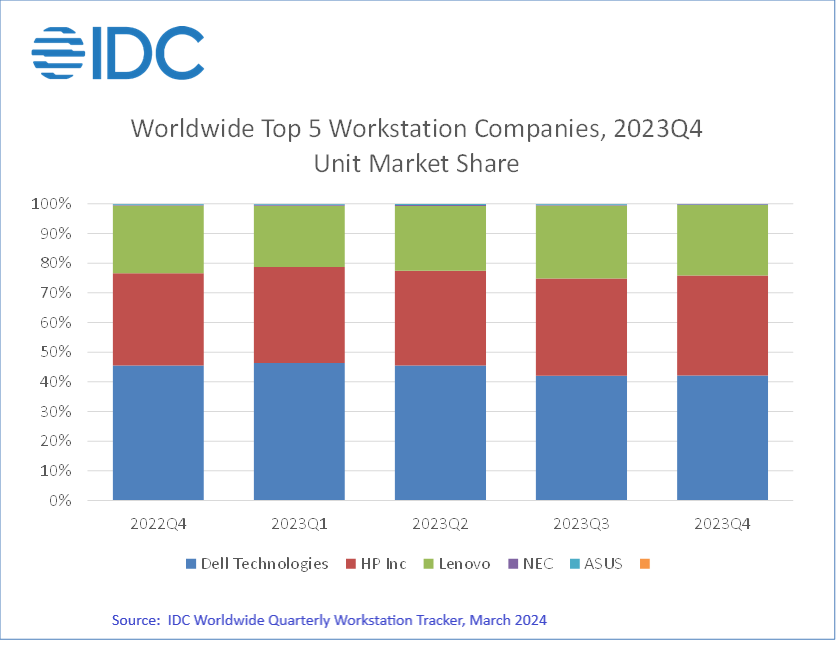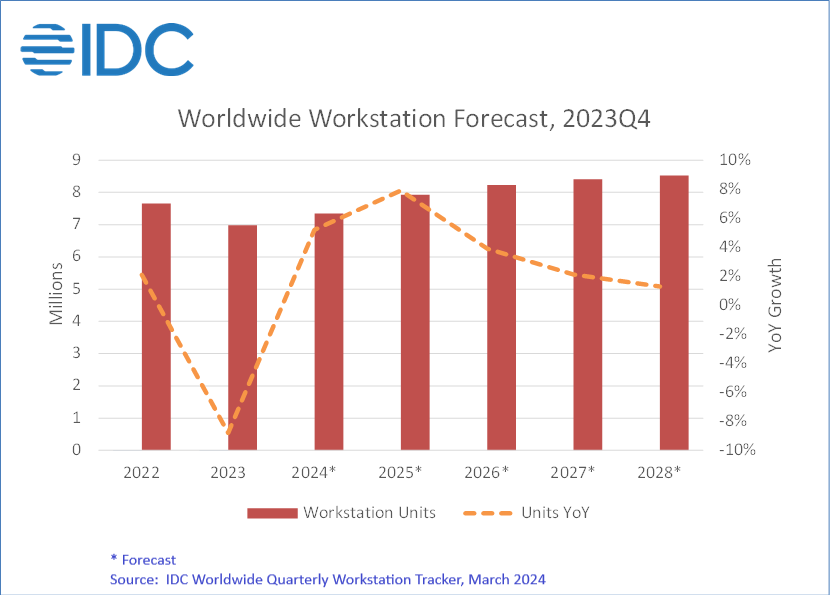In context: Numerous recent analyses have indicated that most PC market sectors saw declines level off in 2023, ending the year with a return to growth in the fourth quarter. A new IDC report shows that workstations are no exception. While last year was down overall, the post-pandemic storm has ended.
According to IDC, desktop and laptop workstation shipments fell 8.8% last year. Although this represents the second-worst drop since the company's records began in 2008, analysts expect sustained growth over at least the next two years.
Projections are optimistic because most of 2023's decline occurred in the first half of the year before shipments stabilized in the latter half. Other reports showed that sectors like CPU and GPU shipments grew by over 20% in the fourth quarter.
Furthermore, the market remains larger than before the pandemic, indicating that the 2022 and 2023 post-pandemic shock didn't erase all of the gains from 2020 and 2021. The enterprise workstation sector is also more resilient than other areas of the PC market.
The top two players, Dell and HP, slowed down through most of 2023 but maintained their market share lead. In third place, Lenovo benefitted the most from the Q4 recovery, growing over 11% despite weakness in China.
Analysts expect multiple factors to drive a 5.2% expansion in workstation shipments in 2024 and a 7.9% increase in 2025. Among these factors is a migration to Windows 11. This week, Microsoft announced that Windows 10 Enterprise and Education editions will reach end-of-life status on June 11 for version 21H2 and October 14, 2025 for version 22H2. Receiving security updates after that point will require organizations to either upgrade to Windows 11 or pay an expensive subscription, and many Windows 10 systems do not officially support the new OS.
Additionally, analysts hope that upcoming "AI PCs" will drive purchases of new devices, including workstations. CPU manufacturers AMD and Intel are pushing new generations of processors with neural processing units that can locally handle generative AI workloads. Microsoft is also investing significantly in the trend with the upcoming Windows 11 24H2 update, which will introduce multiple AI features. The Copilot key, which the company recently added to the official Windows keyboard specification, is another sign of Microsoft's confidence in the AI future.
Further out, IDC expects a more subdued 2% compound annual growth rate through 2028.


